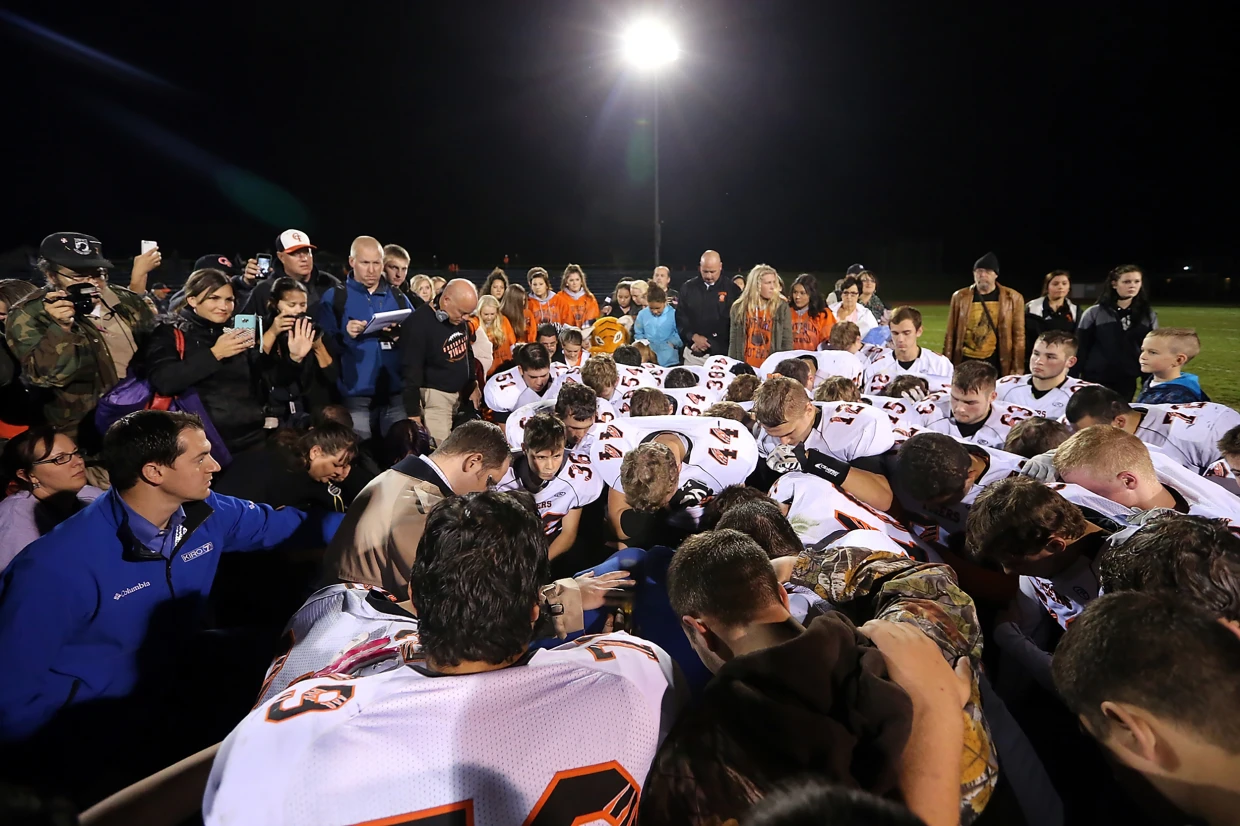April 12, 2013
The panel moderator, a Sikh in a white turban, white tunic and white pants, did an informal poll. How many of us, he wondered, knew something about Christianity? Judaism? Islam? Sikhism?
Nearly everyone in the audience of roughly 100 knew something about Christianity. More than half knew something about Judaism. Perhaps half knew something about Islam. Only a handful knew something about Sikhism.
Most in the audience were students at Chapel Hill-Chauncy Hall School in Waltham, a private high school that sponsored Wednesday night’s interfaith discussion about rebirth and renewal. I was one of perhaps a dozen adults at the public event. I came out of curiosity. I am working on a book about public schools’ efforts to teach students about the world’s religions.
(Note to blog followers: Beacon Press just awarded me a contract to do this book, which stems from a 2011 Boston Globe magazine piece I wrote about Wellesley Middle School’s class on world religions for sixth graders. The book, yet-to-be-titled, likely will be published in early 2015.)
This week’s event hammered in an important point: many of us know far too little about the basic beliefs of the world’s religions.
The moderator’s poll gives a superficial glimpse at our knowledge because he did not quiz us on what “something” meant for each of us. I did not raise my hand about Sikhism, a religion of which I know almost nothing. One of the panel speakers, a Sikh, said the religion draws from Islam and Hinduism, but Sikhs do not have a consensus on that point. I did raise my hand about the other religions, but my knowledge is superficial, gleaned from people I know, classes I have sat in as a journalist, and books. I know the most about my own faith, Judaism, but could not, as my temple’s senior rabbi did at this panel, give a lecture on what Jews believe when it comes to rebirth and renewal.
I would have made a guess that turned out to be right. Yom Kippur, the Jews’ day of atonement, serves as the time when we act as if we are reborn, when we ask for forgiveness for transgressions. We don’t like to use the word sin because Hebrew has no word for it. The word, as my rabbi said, is “chet,” which means to “miss the mark.”
The words of the Christian pastor, a minister at a mega-church in my suburban town, were familiar. He talked about Christians’ personal connection to God and the role Jesus plays. Easter, which celebrates the resurrection of Jesus, is the holiday where Christians celebrate their own rebirth, the pastor said.
I knew too about the Muslim pilgrimage to Mecca, known as the Haj. I did not know what the Muslim chaplain told us. Before a Muslim goes to mecca, he or she first asks for forgiveness from people at home. Upon return, other Muslims celebrate their fellow Muslim’s trip to Mecca.
“It’s greater than being a doctor or even the president,” the chaplain told us.
But I had never heard of the Sikh holiday known as Bisaki Day, which happens this Sunday. The Sikh minister told us the story of this holiday, which first started in 1699. The story was long and somewhat spellbinding about how a famous guru of the Sikh religion called his congregation of some 80,000 followers to give themselves completely. Those there thought the guru meant that they would have to sacrifice their lives. Only five people volunteered. They were not killed, but went out of sight for a short period. “When they came back, they were dressed much like I am tonight, and the guru said, ‘They are now reborn,’ “ the minister told us. This Sunday, the minister told us, he and his fellow Sikhs will celebrate that moment and “what we are willing to sacrifice.”
In short time, any attentive listener could make a connection: Each of the religions set aside a day for introspection and repentance. Each day is different in approach, but the value is similar. As humans, we need to take time to think over what we might have done better in the previous year and how we could improve in the year to come.
The audience did not fill the high school’s common space, which used to be church chapel. It was hard to gauge how much of the talk interested the teens in attendance. Some hunched over in the wooden pews and played with their cell phones. Others stared ahead. Their attendance was required.
Were these teens bored? I had no idea because they left too quickly for me to ask their views. If they absorbed even a little of what was said, they might enter the grown-up world wiser than most of us. They will have a better understanding of the complexity of different religions as well as the differences and similarities.
The words of the Muslim chaplain, a female, stuck with me as the event ended. The woman, who wears a hijab, a head covering, talked about the difficulty of being a Muslim after the Sept. 11 attacks and of serving in the military.
“It’s been a double-edged sword being Muslim and an enemy of your country is of the same religion. It’s been like walking on eggshells with my colleagues,” said the woman. “It’s been difficult for many of us, the essence of not being trusted.”
Each speaker emphasized what all of us need to understand not just but about Muslims, but Jews, Christians, Sikhs, and followers of any religion. Each religion has multiple layers. None of us, even when we follow the same religion, are exactly alike in our beliefs. But on many levels, we seek the same kind of comfort and community from our religion – if we choose to follow one.




